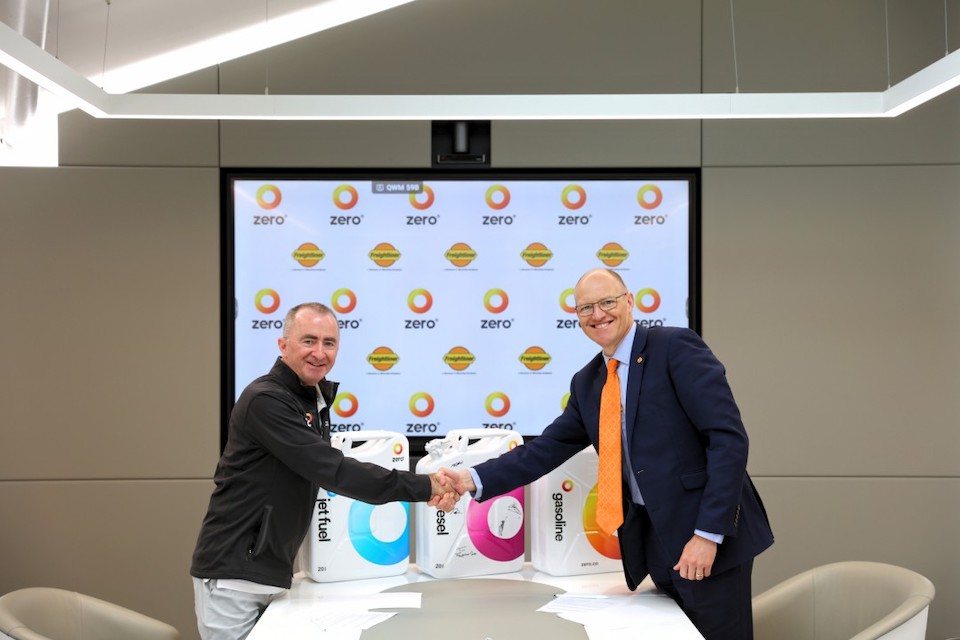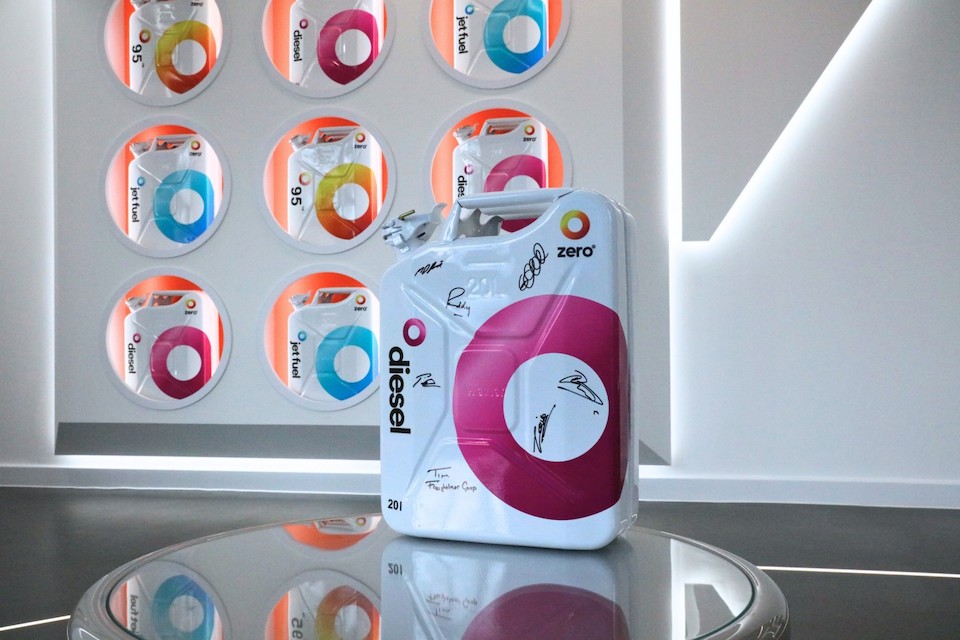Carbon-neutral synthetic diesel could be just the tonic the rail freight industry is seeking. Operators will have to radically rethink their motive power fleets to meet the stringent net zero carbon ambitions set out in law by the UK government. New fuels for old locomotives could be the environmental and economical answer. Enter Zero, with nothing to offer—nothing, by way of emissions that is.
Zero describes itself as a breakthrough energy company. They develop and manufacture whole-blend synthetic, non-biological fuels. Zero is probably not well known in the rail sector. Freightliner, on the other hand, needs no such introduction among its peers. Now, the London-headquartered Zero has announced a partnership with Freightliner in the UK. They aim to achieve a fossil-free locomotive operation by 2040 and an overall net zero by 2050.
Pioneering is in the British psyche
The United Kingdom’s governments seem to be competing with each other to deliver a net-zero economy. That competition is challenging the ingenuity of Britain’s rail freight operators. Despite the introduction of advanced electric, bi-mode, and even tri-mode motive power, the sector is still likely to depend for many years to come on a large existing fleet of diesel locomotives.

To successfully meet these ambitious emissions targets, operators, including Freightliner, are exploring alternatives to diesel. The partnership Freightliner has just formalised with Zero gives them access to the company’s carbon-neutral synthetic diesel programme. If successfully adopted, it may not imbue Freightliner’s trusty class 66 diesels with the F1 performance of Zero’s motor racing partners. However, the fuel could eliminate fossil-carbon emissions and wave the chequered flag for improved air quality and environmental well-being.
Drop-in synthetic fuel solution
Zero’s founder and chief executive, Paddy Lowe, says that pioneering is in the British psyche. He says that has been reflected in the railways, going as far back as Trevithick’s world-first full-scale working railway steam locomotive in 1804. “The UK has a proud tradition of innovation in rail and energy”, he said. “Steam locomotives powered the Industrial Revolution for more than a century, ushering in an era of unprecedented progress and prosperity. Now, Freightliner is revolutionising rail freight and logistics by integrating fossil-free fuel into the most efficient mode of freight transportation.”
Freightliner is already well down the line with net-zero rail freight operations. The company has the largest fleet of electric locomotives in the UK. However, it also has a much larger fleet of traditional diesel units, on which much of its business relies. “With Zero’s drop-in synthetic fuel solution,” explained Lowe, “Freightliner and its customers can continue using their existing diesel locomotive fleet while maximising performance and minimising emissions.”
The future of fossil-free rail
Zero has already been recognised as an industry leader in the sector. “We are delighted to be building this partnership with Zero, which will form an essential part of Freightliner’s sustainability strategy,” said Tim Shoveller, chief executive at the rail freight operator. The technology has the capability of accelerating both our customers’ and our own journey to a more sustainable alternative, reducing carbon emissions. This alternative fuel has the potential to reduce carbon emissions much further, providing a very clear sustainable future for rail freight.”

In addition to locomotives, Zero will support non-road mobile machinery and other vehicles. Freightliner has set near-term targets for a 55 per cent reduction of greenhouse gas emissions by 2033, which will require approximately 26 million litres of alternative fuel across its asset population. Zero’s rapid scale-up of fuel production reflects the level of demand. They plan to build the world’s first commercial-scale synthetic fuel facility in the next two years. Zero recently opened the world’s first fully featured synthetic fuel plant at Bicester, near Oxford. It has plans to build a commercial-scale plant which is to begin production in 2026. Hopefully, the plant will be rail-connected.